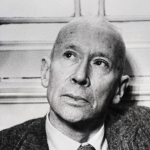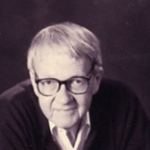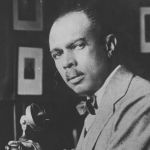M.A.K. September, 1880-September, 1955
As I wandered on the beach
I saw the heron standing
Sunk in the tattered wings
He wore as a hunchback’s coat.
Shadow without a shadow,
Hung on invisible wires
From the top of a canvas day,
What scissors cut him out?
Superimposed on a poster
Of summer by the strand
Of a long-decayed resort,
Poised in the dusty light
Some fifteen summers ago;
I wondered, an empty child,
“Heron, whose ghost are you?”
I stood on the beach alone,
In the sudden chill of the burned.
My thought raced up the path.
Pursuing it, I ran
To my mother in the house
And led her to the scene.
The spectral bird was gone.
But her quick eye saw him drifting
Over the highest pines
On vast, unmoving wings.
Could they be those ashen things,
So grounded, unwieldy, ragged,
A pair of broken arms
That were not made for flight?
In the middle of my loss
I realized she knew:
My mother knew what he was.
O great blue heron, now
That the summer house has burned
So many rockets ago,
So many smokes and fires
And beach-lights and water-glow
Reflecting pinwheel and flare:
The old logs hauled away,
The pines and driftwood cleared
From that bare strip of shore
Where dozens of children play;
Now there is only you
Heavy upon my eye.
Why have you followed me here,
Heavy and far away?
You have stood there patiently
For fifteen summers and snows,
Denser than my repose,
Bleaker than any dream,
Waiting upon the day
When, like grey smoke, a vapor
Floating into the sky,
A handful of paper ashes,
My mother would drift away.



















Comment form: